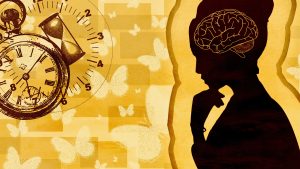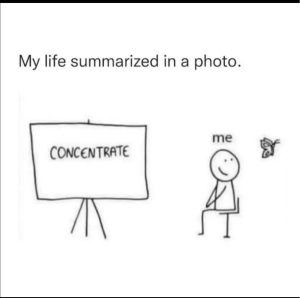ADHD in Men, Women, and Children
Attention-deficit/hyperactivity disorder (ADHD) has become a buzzword people use when they lack motivation or concentration. However, for individuals with the disorder, ADHD can be challenging and chronic and can manifest in different ways for men, women, and children, leaving many women undiagnosed.

Who Has ADHD?
ADHD is a common mental disorder among children, with up to 11 percent of school-age children diagnosed with it. According to the American Psychiatric Association, 2.5 percent of adults in the United States are affected by ADHD.
Signs Point to ADHD
Symptoms of ADHD present differently in different age and gender groups. The most well-known symptoms are the inability to focus and keep still. These symptoms are common for children diagnosed with ADHD as they often lead to a disturbance in the classroom.
Symptoms in children include:
- short attention span
- making careless mistakes
- appearing forgetful or losing things
- inability to concentrate on tasks that are tedious or time-consuming
- difficulty listening or following instructions
- constantly changing activity or task
- lack of organizational skills
- being unable to sit still
- constantly fidgeting
- excessive physical movement
- excessive talking
- acting without thinking
- interrupting conversations
- little or no sense of danger
Doctors can identify ADHD in men due to the external symptoms they exhibit, including hyperactivity and impulsiveness. Women have more subtle, internal, and less obvious symptoms like inattentiveness, so they may go undiagnosed.
Some specialists have suggested the following as a list of symptoms associated with ADHD in adults:
- lack of attention to detail
- inability to finish tasks
- poor organizational skills
- inability to focus
- continually losing things
- forgetfulness or carelessness
- restlessness and agitation
- difficulty keeping quiet
- blurting out responses, speaking out of turn, or interrupting others
- mood swings, irritability, and a quick temper
- inability to deal with stress
- extreme impatience
- taking risks in activities, often with little or no regard for personal safety or the safety of others
ADHD can coincide with low self-esteem, problems with academics or job performance, difficulty with interpersonal and daily social functions, and increased sensitivity, especially to criticism. ADHD can also coincide with depression and anxiety.

Types of ADHD and Corresponding Symptoms
- Inattentive – this type of ADHD affects focus, ability to stay on task, listening, follow-through, and ability to organize and prioritize.
- Hyperactive/Impulsive – this type exhibits excessive movement, vocalization, and energy, and decisions are made without consideration.
- Combined – this type includes criteria from both types.
Causes
The exact cause of ADHD is unknown, but there is evidence that genetics contribute to ADHD. Although several genes are linked to the disorder, no one gene or combination has been identified as the definitive cause.
There is evidence of anatomical differences in the brains of those affected with the disorder, and relatives often seem to be similarly affected. There are also non-gene-related factors linked to the disorder, like low birth weight, premature birth, and exposure to toxins or severe stress during pregnancy.
Treatment
ADHD is typically diagnosed by a mental health provider or primary care doctor. The diagnosis may be established from a description of past and current symptoms, completion of a questionnaire, rating scale, or checklist, and information regarding psychiatric, medical, and family history, etc.
Some conditions can mimic ADHD, so a diagnosis from a professional and a complete evaluation is essential. ADHD can also coexist with other mental health conditions. There are no blood tests or imaging tests for ADHD, so the diagnosis is based on symptoms that persist over time in multiple locations and are noticeable over the last six months before diagnosis.
After receiving a diagnosis of ADHD, treatment typically combines therapy and medication. In very young children, the recommended approach consists of behavior strategies for parents and school intervention.
ADHD is a chronic condition, and many individuals diagnosed as children will continue to show signs of the disorder in adulthood. Sometimes a diagnosis is missed in childhood. Adults with ADHD are typically treated with medication, therapy, or both. Some strategies for coping with ADHD that can be discussed in therapy include:
- Ways to minimize distractions
- Ways to create structure
- Time management
- Ways to create and follow routines
- How to know and respect your limits
ADHD can be difficult for individuals who experience it and their loved ones. If you think you or someone you love might have ADHD, the first step is obtaining a diagnosis from a mental health provider. If you get diagnosed with ADHD, a licensed mental health professional can help you work on behavior strategies to make life with the disorder easier.
Working with an experienced and licensed mental health professional is crucial for managing symptoms of ADHD and other mental health conditions. If you would like more information about counseling here in Jacksonville, FL, please don’t hesitate to contact the counselors at Jacksonville Center for Counseling.